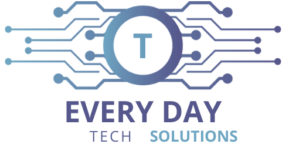Table of Contents
Well, here we are again, diving into the realm of artificial intelligence. But before we get knee-deep in codes and algorithms, let me break it down for you in plain ol’ English.
AI, my friend, stands for artificial intelligence. It’s all about smart machines and computer systems that can do the thinking and learning just like good old Homo sapiens. We’re talking about expert systems, natural language processing, speech recognition, and even machine vision. It’s like teaching a computer to see, hear, and understand the world around it.
So how does it work? These clever machines analyze tons of data, looking for patterns and connections. And you know what they do with that newfound knowledge? They make predictions about the future, just like a fortune teller with a CPU.
When it comes to programming AI, there’s a whole bunch of languages in the game. Python, R, Java, C++, and Julia, to name a few. It’s like assembling a team of multilingual geniuses to crack the ultimate code. Impressive, isn’t it?
Key Takeaways:
- AI stands for artificial intelligence – it’s all about smart machines and computer systems.
- AI encompasses various applications, such as expert systems, natural language processing, and machine vision.
- These machines analyze data to find patterns and make predictions about the future.
- Popular programming languages for AI development include Python, R, Java, C++, and Julia.
Why AI is Important and Its Impact
Artificial intelligence (AI) is more than just a buzzword; it has the power to revolutionize the way we live, work, and play. The applications of AI are vast and varied, and its benefits extend across industries. By automating tasks, improving efficiency, and generating valuable insights, AI can have a profound impact on businesses and individuals alike.
From customer service automation to lead generation, fraud detection to quality control, AI is being used to streamline operations and enhance productivity. AI has the ability to outperform humans in repetitive and detail-oriented tasks, leading to increased accuracy and faster results. For businesses, this means saving on labor costs, improving productivity, and delivering consistent and personalized experiences to customers.
The impact of AI is not limited to specific industries; its potential growth is expected to have far-reaching effects. In education, AI can personalize learning experiences for students, adapting to their individual needs and enhancing engagement. In marketing, AI can analyze consumer data to provide targeted and effective advertising campaigns. And in product design, AI can assist in creating innovative and user-friendly solutions.
The future of AI is filled with possibilities, as advancements continue to be made and new applications are discovered. While there are challenges and concerns surrounding AI, such as the need for technical expertise and the potential for job displacement, the benefits it offers cannot be ignored. As we embrace this technology and leverage its capabilities, we can unlock new levels of efficiency, productivity, and innovation.
Advantages and Disadvantages of AI
Ah, artificial intelligence, a marvel of our time! It comes bearing gifts in the form of numerous advantages. Let’s dive into the AI advantages pool, shall we? Firstly, AI excels at detail-oriented jobs, like that of a meticulous doctor diagnosing ailments. It can sift through vast amounts of data with lightning speed, saving precious time and resources. Plus, it enhances productivity, delivers consistent results, and offers delightful personalization for customers. Talk about a triple threat!
However, my friend, like all things in life, AI has its not-so-shiny side too. Brace yourself for the AI disadvantages. To process hefty data chunks, you might need a sizeable budget. AI demands deep technical expertise, and hey, not everyone is an AI wizard. And let’s not forget the job displacement factor; it’s like the oil stain on a pristine white shirt. Also, be cautious of AI systems as they can reflect the biases lurking within their training data. Discriminatory outcomes? No thank you!
But wait, there’s more!
AI’s ability to generalize from one task to another is still a work in progress. We’re far from achieving that “Terminator” level of artificial intelligence. Remember, strong AI, capable of replicating human-level intelligence, is still floating in the realm of theory. So, while we enjoy all the perks AI has to offer, let’s be wise and not expect it to do everything just yet.
So, my dear readers, AI has its fair share of advantages and disadvantages. It’s a double-edged sword, a powerful tool that can transform industries, improve lives, and challenge us to overcome its limitations. As we navigate the AI landscape, let’s keep our eyes open, our wit sharp, and our expectations realistic.
FAQ
What exactly does AI mean?
AI stands for artificial intelligence, which refers to the simulation of human intelligence processes by machines and computer systems.
Why is AI important and what impact does it have?
AI is important for its potential to revolutionize how we live, work, and play. It can automate tasks, improve efficiency, and generate insights in various industries. It is expected to have a significant impact in fields such as education, marketing, and product design.
What are the advantages and disadvantages of AI?
AI offers advantages such as excelling at detail-oriented jobs, saving time and resources in data-heavy industries, increasing productivity, providing consistent results, and improving customer satisfaction through personalization. However, it can be expensive, requires technical expertise, may result in job displacement, and can reflect biases present in training data. The development of strong AI is still theoretical.




